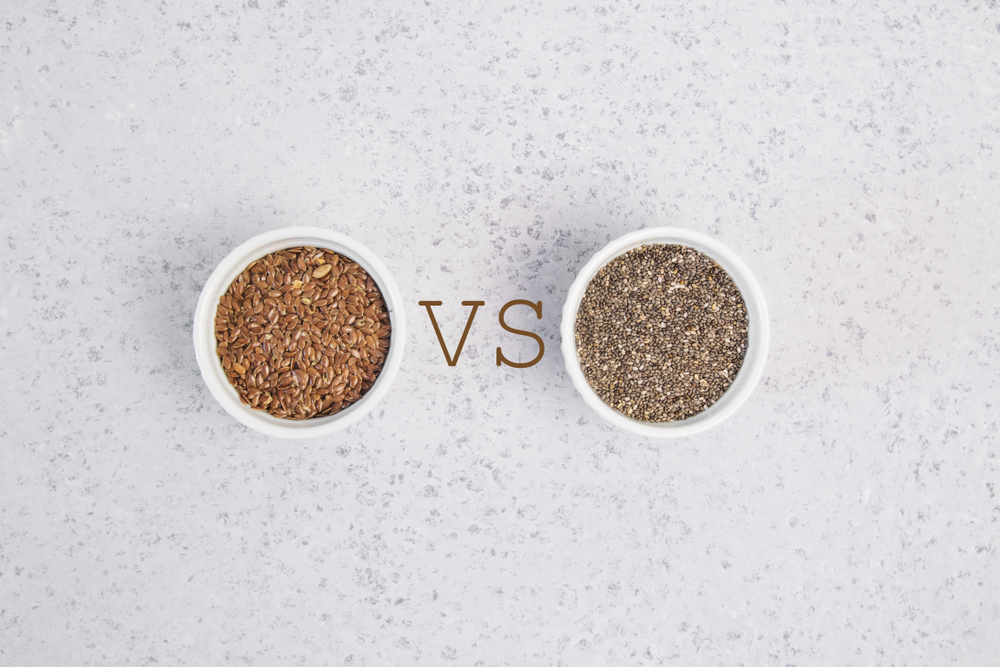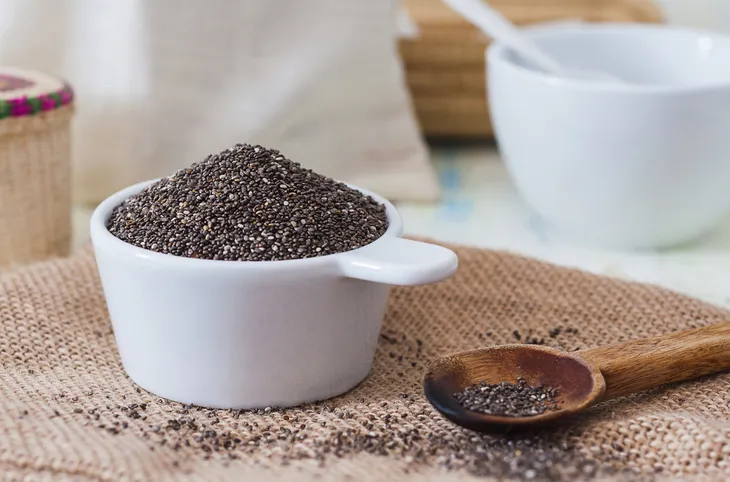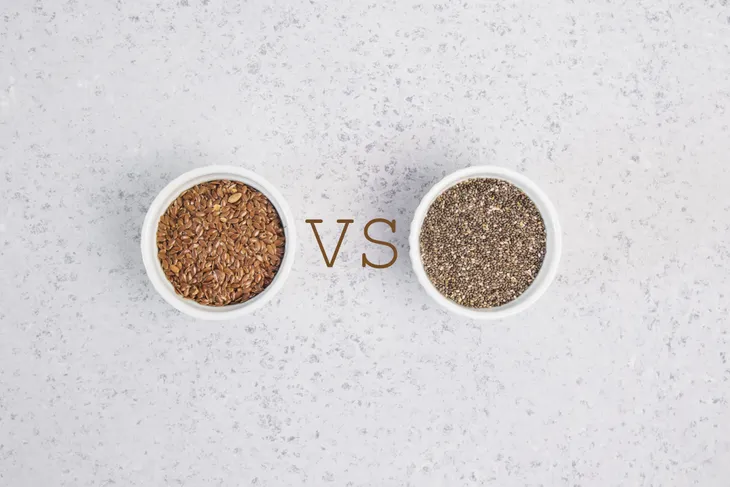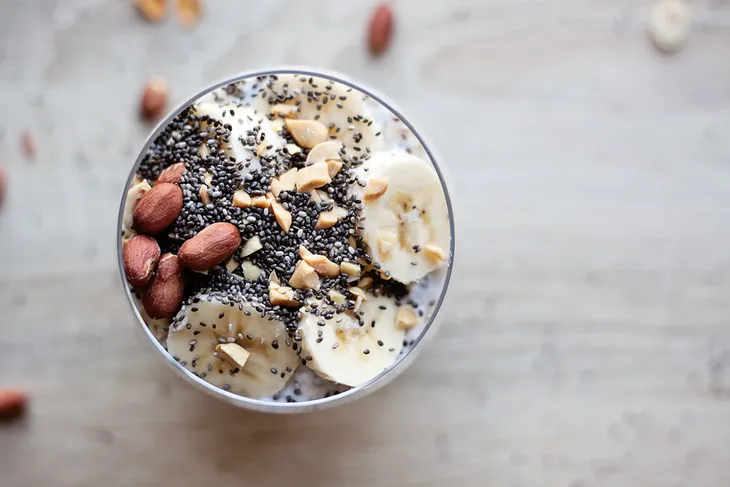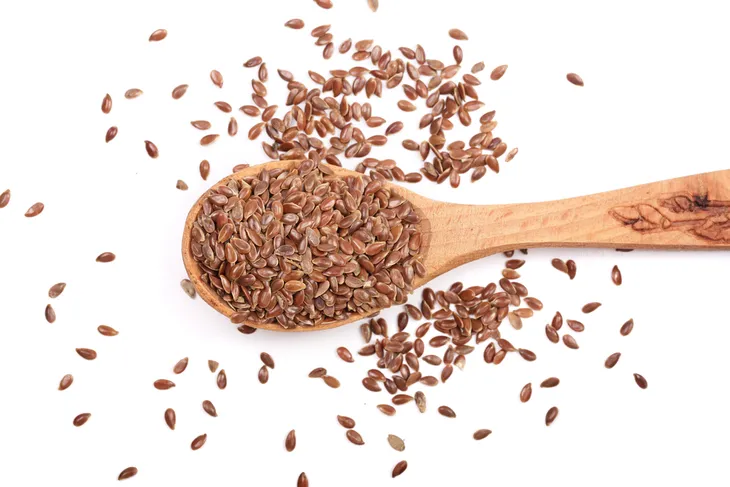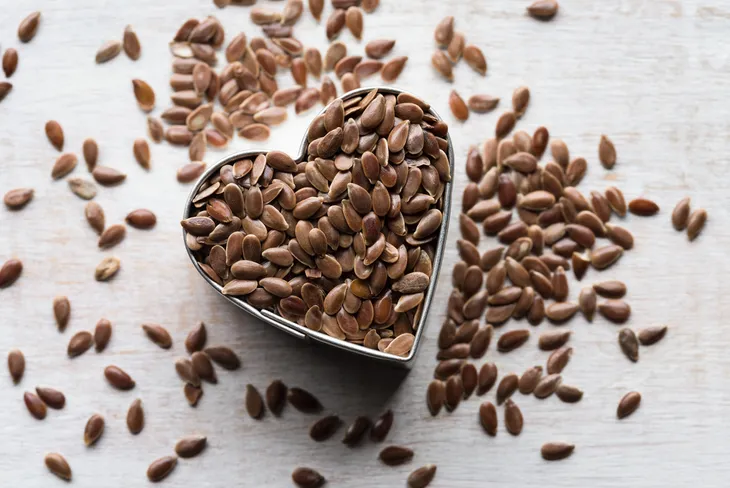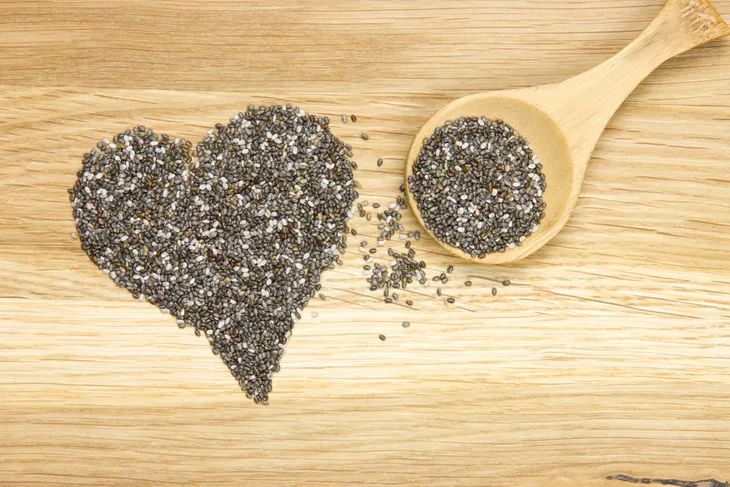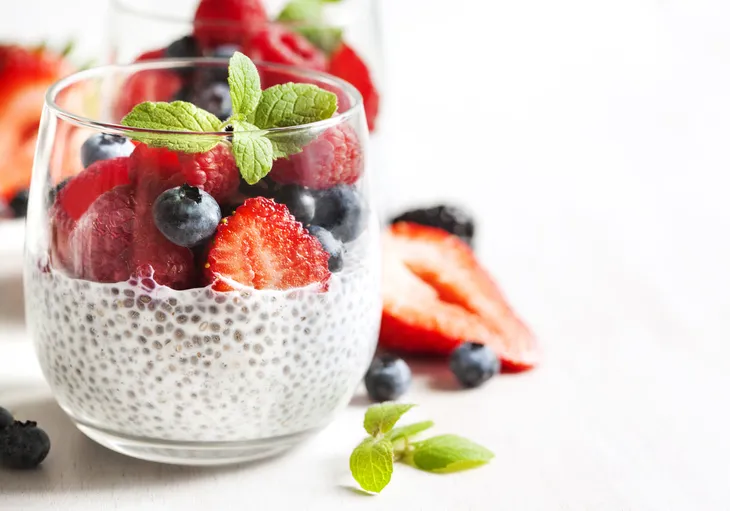You’ve likely heard a lot of positive things between two much-hyped superfoods—flax and chia seeds. It’s about time we got the real scoop when it comes to which seed has more health benefits.
That’s right, it’s time for an all-star, health food face off between flaxseeds and chia seeds to see exactly which seed comes out on top when it comes to positive health benefits…
Protein and Heart-Healthy Fats
When you’re scooping seeds into your diet for a more healthful edge, the big 3 essentials to look out for are dietary fiber, protein, and heart healthy fats. When it comes to protein, both chia and flax seeds emerge in a neck-in-neck draw, according to Prevention Magazine.
Two-tablespoon servings of each seed weigh in with roughly 2.5-grams of protein, respectively. Both seeds are also equally matched when it comes to the amount of cholesterol-balancing omega 3 fatty acids, female-friendly folate, potassium, and magnesium offered.
Dietary Fiber in Chia vs. Flax
However, the tables suddenly turn when it comes to fiber. If you’re reaching for chia seeds, research from the USDA’s National Nutritional Database says you can expect a stellar 20-percent of your daily recommended allowance (RDA) in one serving.
Flax still provides the fibrous goods, at only 15-percent of your RDA. Chia also provides double the calcium—11-percent of your recommended daily dose (compared to just 5-percent in flax).
Disease-Fighting Vitamins & Nutrients
In the end, chia delivers more when it comes to antioxidants, the molecules found in food and beverages, which protect the body from disease-causing free radicals. The USDA also notes that chia contains more heart-healthy selenium, and bone-strengthening phosphorus compared to flax.
But don’t count out flax just yet—this seed has bragging rights in its corner when it comes to higher levels of cancer-blasting magnesium, tissue-defending copper, and brain-boosting vitamin B1!
Calories and Carbohydrate Content
When it comes to points for basic nutrition, it really depends on your individual needs from flax vs. chia seeds. If you’re judging these seeds based on their calorie count, chia wins out for fewer calories—just 69 per 2-teaspoon serving compared to 75-calories from flax, according to Prevention Magazine.
Chia also gets points for ranking as the slimmer seed—there’s just 4.4-grams of fat per serving compared to 6-grams of fat per serving of flax. However, flax is packed with fewer carbohydrates—just 4-grams of carbs vs. chia’s 6-grams of carbs per serving.
Flax Prevents Breast Cancer
The many touted health benefits of flax are due to the seed’s rich phytoestrogen lignans content (pronounced like phi-to-estrogen), which is especially important for the ladies.
Lignan compounds infuse the female body with a weak form of estrogen, which studies from USDA’s National Nutritional Database have linked to breast cancer prevention.
Chia Lowers Heart Disease Risk
Research from the National Institutes of Health indicates that chia is linked to significantly lower rates of cardiovascular disease, high blood pressure, metabolic syndrome, type 2 diabetes, and other related diseases when consumed in conjunction with a healthy diet and lifestyle.
Both chia and flaxseeds can be eaten whole, however it won’t be digested as well. Ground flaxseed is a popular choice to avoid these digestive issues, whereas chia seeds are more often consumed whole. That means chia gels when mixed with liquids, like smoothies and yogurt, can better regulate blood sugar and fill you up for longer if you happen to be dieting.
Substituting Chia or Flax for Other Foods
In the end, depending on your own nutritional and dietary needs, it’s really up to you to declare a winner between chia seeds vs. flax seeds.
Unless you’re subbing chia or flax seeds for other foods in your diet, remember that you’re adding 60-calories or more per 2-teaspoon servings, which can quickly add up and outweigh the other well-hyped health advantages. For more information on how to enjoy chia seeds, check out our article on Versatile and Healthy Ways to Enjoy Chia Seeds.
